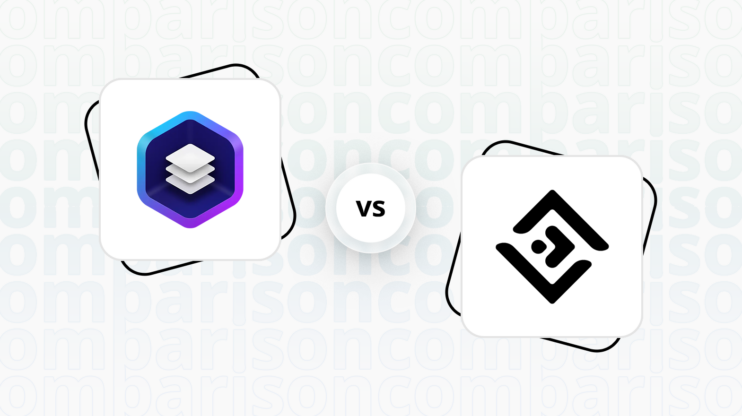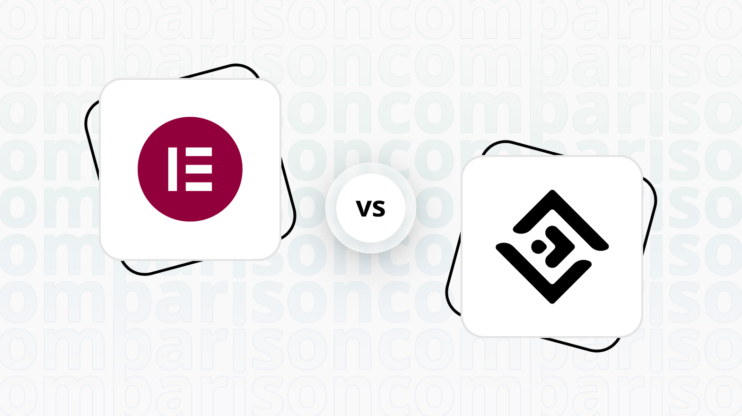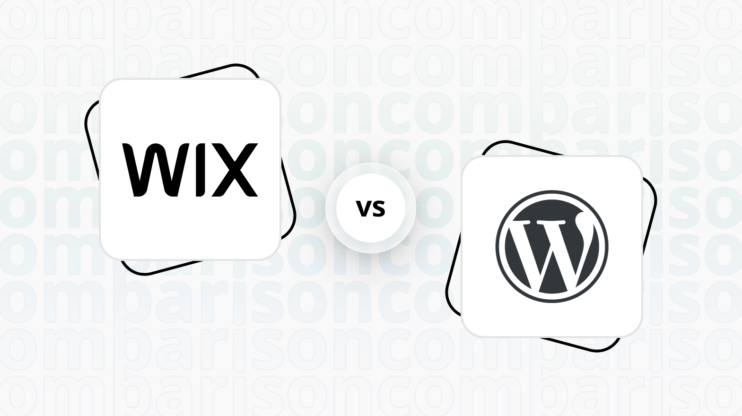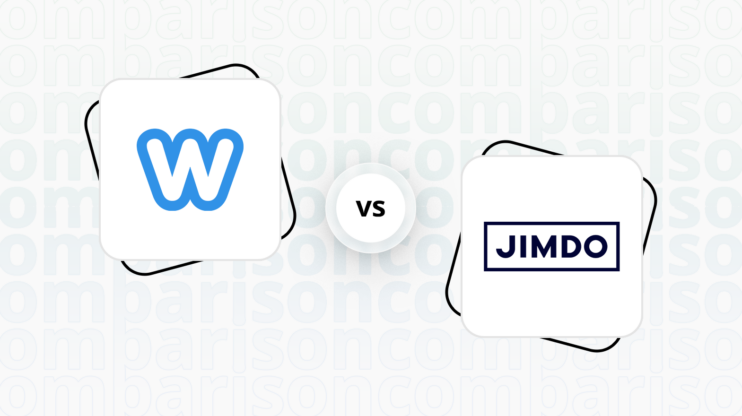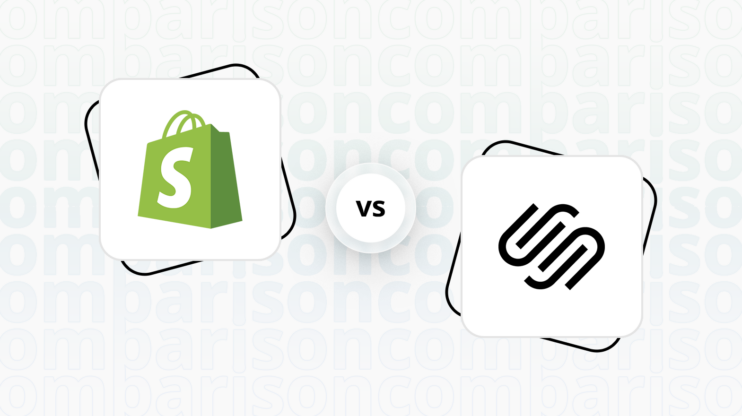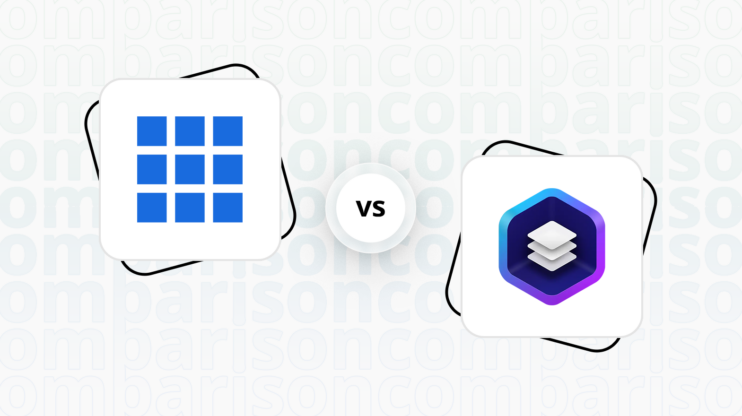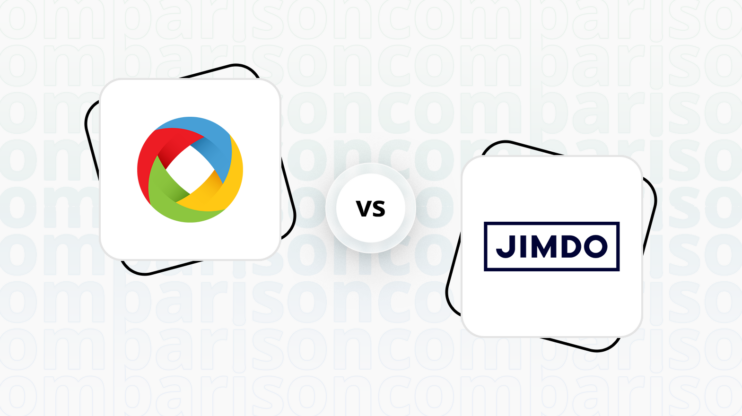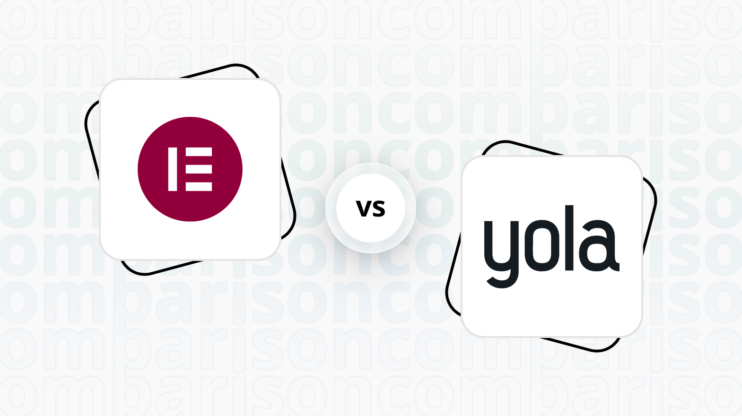Final verdict
Elementor and Blocs cater to different user needs, with Elementor emerging as the more versatile and feature-rich option.
-
Elementor (Overall Grade: 7.4/10)
excels with its extensive range of templates, widgets, and customization options, making it ideal for users seeking flexibility and control over their website design. Its integration with WordPress enhances its functionality, allowing for a wide array of plugins and add-ons. Elementor’s strengths in ecommerce, website speed optimization, plugins and integrations, marketing features, customer support, security, AI capabilities, and user management make it a comprehensive solution for both beginners and advanced users. -
Blocs (Overall Grade: 5.8/10)
, designed specifically for Mac users, offers a streamlined and intuitive interface for creating modern, responsive websites. While it may not match Elementor in terms of versatility and range of features, Blocs is praised for its ease of use and the quality of its design templates. It is a solid choice for users who prefer a more straightforward, Mac-centric web design tool.

|

|
|
|---|---|---|
|
Design functionalities & templates |
7.5 |
9.2 |
|
Ease of use |
8.7 |
8.8 |
|
Ecommerce |
7.0 |
7.6 |
|
Website Editors |
7.5 |
8.5 |
|
Product testing options |
7.0 |
5.6 |
|
Price |
9.0 |
8.0 |
|
Hosting quality |
0 |
7.8 |
|
Website speed optimization |
5.2 |
6.7 |
|
Plugins and integrations |
6.8 |
7.6 |
|
Marketing features |
6.9 |
7.8 |
|
Customer support |
5.1 |
7.2 |
|
Security |
0.0 |
9.1 |
|
AI capabilities |
5.4 |
7.4 |
|
User Management |
1.4 |
8.8 |
| Overall |
5.8 |
7.4 |
Best for ecommerce
 7.0
7.0
 7.6
7.6
Verdict
: While both Blocs and Elementor provide solid ecommerce solutions, Elementor edges out with a slightly higher score and more comprehensive features for building and managing online stores.
-
Blocs
: Offers a straightforward approach to ecommerce by integrating with third-party platforms like Ecwid and Stripe, making it a good choice for users looking for simplicity and those who are already using these platforms. However, it may lack the depth of customization and features needed for larger, more complex online stores. -
Elementor
: With its higher ecommerce score and deeper integration with WooCommerce, Elementor presents a more robust platform for creating detailed, customizable online stores. It’s particularly suited for users who demand extensive customization options and are looking to leverage the full power of WooCommerce for their ecommerce needs.
Best for informational & business websites
 7.5
7.5
 8.9
8.9
Verdict
: Elementor outshines Blocs for informational and business websites, thanks to its superior design flexibility, ease of use, and comprehensive feature set.
-
Blocs
: Blocs is a solid choice for Mac users looking to build modern, responsive websites with a focus on design. It offers a user-friendly interface and a variety of pre-designed blocks, making it suitable for designers and developers. However, its capabilities for informational and business websites are somewhat limited compared to Elementor, especially in terms of template variety and customization options. -
Elementor
: Elementor excels in creating informational and business websites with its extensive range of widgets, templates, and customization options. It supports responsive design and integrates seamlessly with WordPress, offering flexibility and control over every detail of the website. Elementor’s higher score reflects its effectiveness in meeting the diverse needs of informational and business website builders.
Detailed comparison
Design functionalities & templates
Design FunctionalitiesRepresents how well each platform allows for creative design and customization of websites.Score Components:
- Template Variety (30%): Range and quality of design templates.
- Customization (30%): Flexibility and options for design alterations.
- User Interface (20%): Ease and intuitiveness of the design process.
- Responsiveness (10%): Adaptability to different devices and screen sizes.
- Innovation (10%): Unique design features and tools.
 7.5
7.5
 9.2
9.2
🏆
Winner: Elementor.
If you’re looking for a platform that offers more creative control and a wide array of design features, Elementor is the preferred choice.
Blocs website builder offers a vast selection of design templates, boasting over 36 layouts for various website types, including business, e-commerce, personal portfolios, and photography, catering to a wide range of user needs. These templates are designed to be responsive, ensuring optimal display across different devices, from desktops to smartphones.
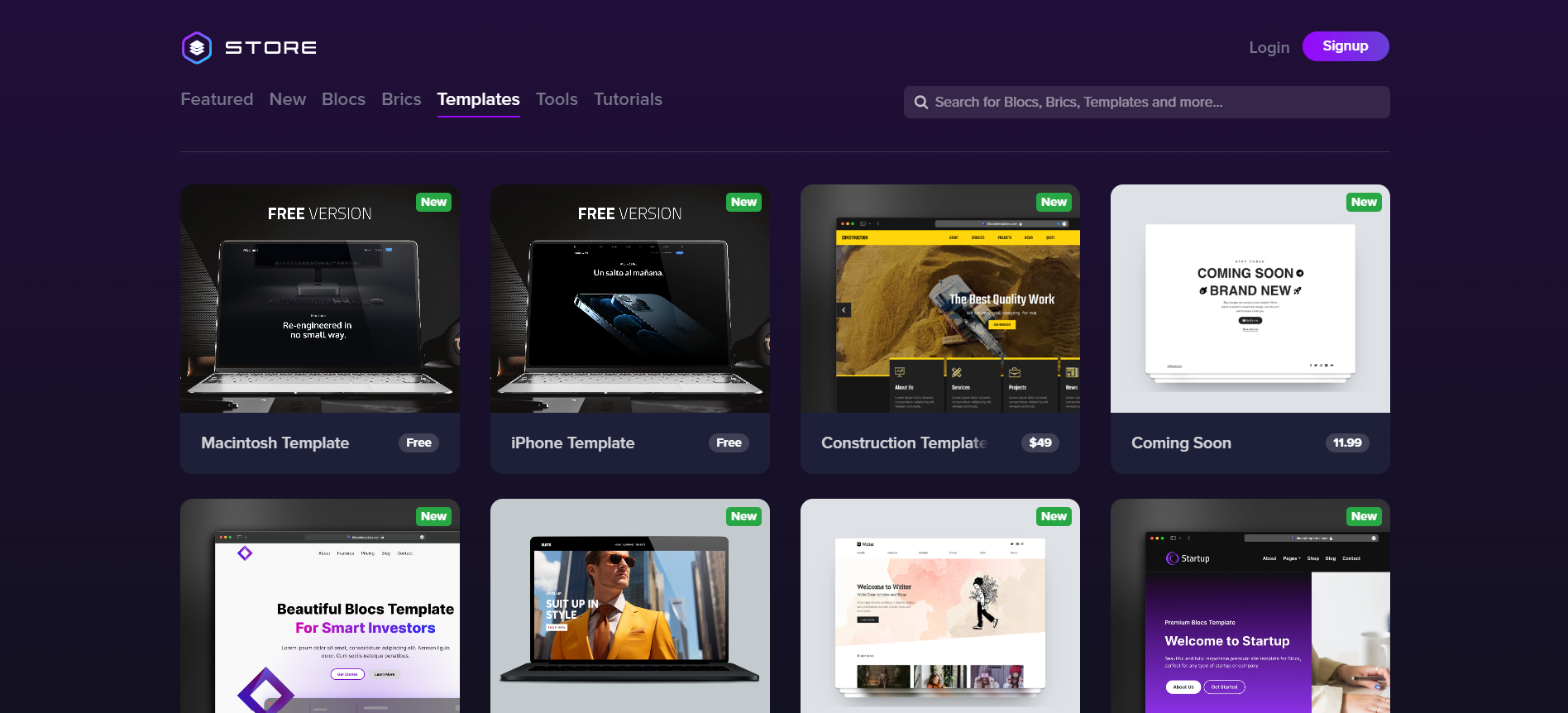
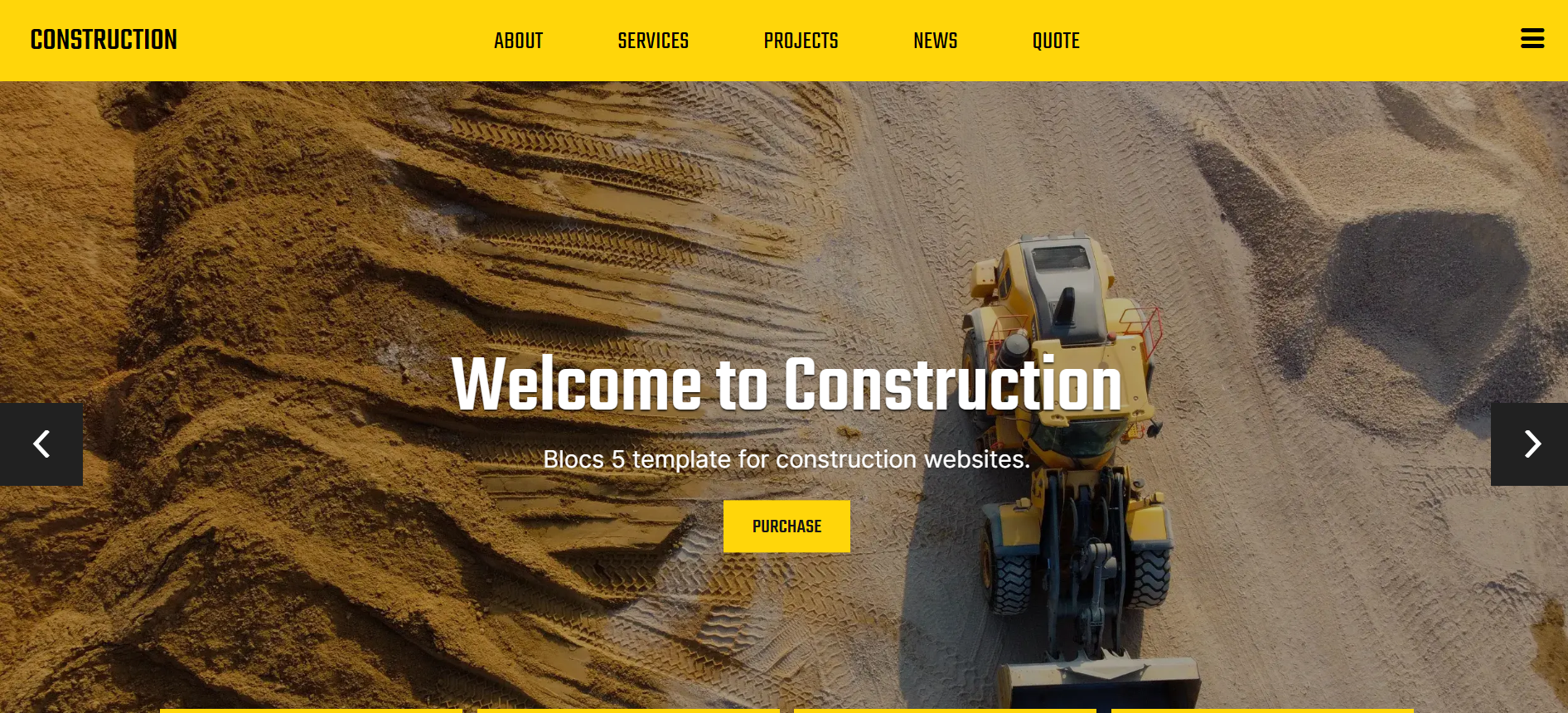
Compared to Blocs, Elementor offers an extensive range of templates and designs, with over 100 responsive website kits covering various categories like business, creative, education, and more, directly available through Elementor’s platform. Additional sources like Envato Elements, Template Monster, and others provide a wider selection, including free and premium options, catering to diverse web design needs.
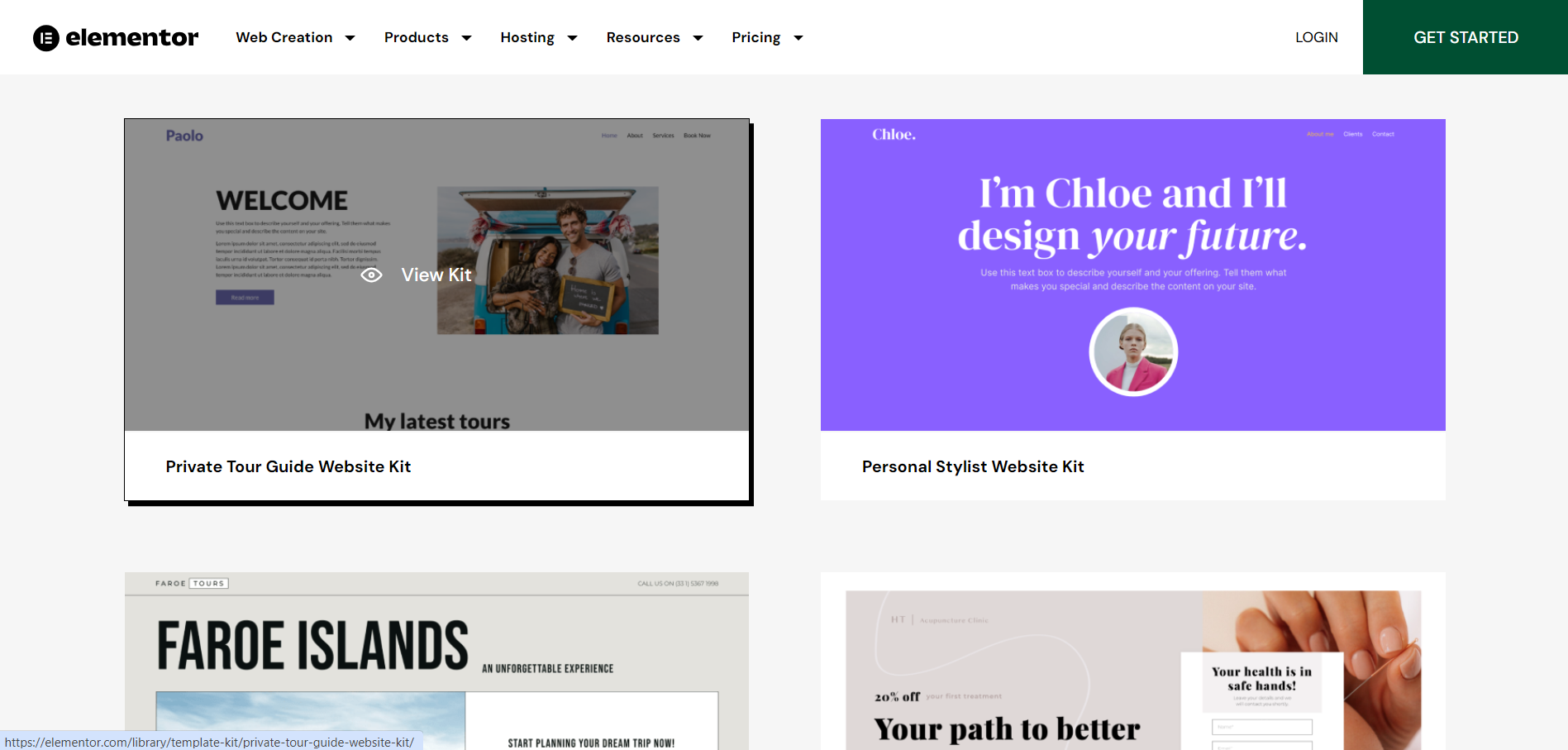
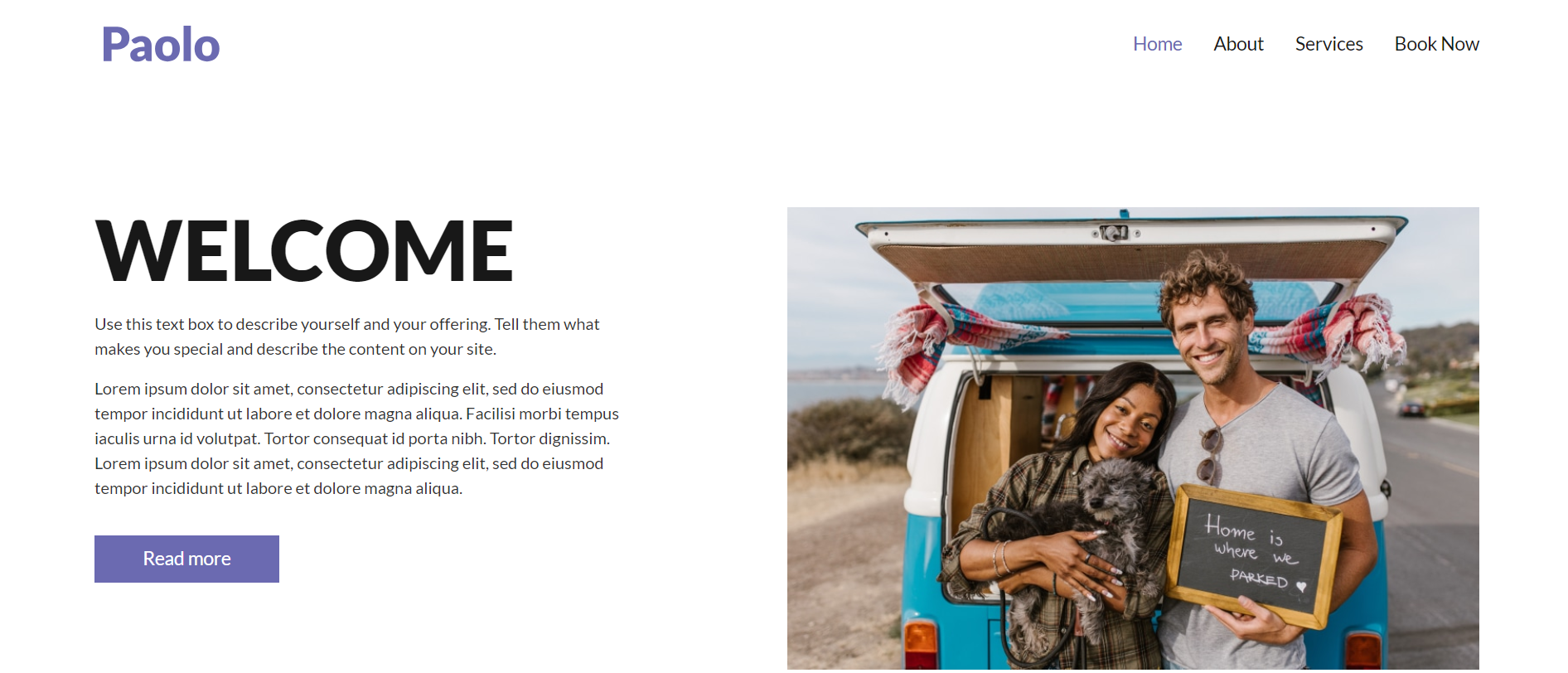
Get a head start on website creation with AI
Create a custom website tailored to your business needs 10X faster with 10Web AI Website Builder!
Ease of use
Ease of useReflects the platform’s overall user-friendliness.Score
Components:
- Learning curve (40%): Quickness and ease of getting started.
- Interface design (30%): Simplicity and intuitiveness of layout.
- User guidance (20%): Quality of tutorials and support.
- Flexibility (10%): Adaptability to various user skills.
 8.7
8.7
 8.8
8.8
🏆 Winner: Elementor
. With a score of 8.8, Elementor slightly edges out Blocs, which scored 8.7. Both platforms are praised for their user-friendly interfaces and drag-and-drop functionality, but Elementor’s wider range of pre-designed templates and widgets, as well as its real-time editing feature, give it a slight advantage.
Learning Resources
🏆 Winner: Elementor
. Both Blocs and Elementor offer comprehensive learning resources, but Elementor’s Elementor Academy, which covers a wide range of topics from basic usage to advanced design and business growth strategies, along with numerous free resources such as blogs, eBooks, and YouTube channels, make it a more versatile learning platform.
For ecommerce
EcommerceMeasures the platform’s effectiveness in supporting online business activities.Score Components:
- Ecommerce themes and templates (20%): Variety and design of templates.
- Product management (25%): Ease of managing and organizing products.
- Payment options (25%): Variety and convenience of payment methods.
- Ecommerce features (20%): Features for managing an ecommerce store.
- Integration (10%): Compatibility with external e-commerce tools and services.
 7.0
7.0
 7.6
7.6
Blocs and Elementor both offer ecommerce capabilities, but they approach it differently. Blocs integrates with third-party ecommerce platforms like Ecwid, Stripe, Snipcart, Paddle, and Gumroad, allowing for features such as buy buttons, checkouts, and complete storefronts. On the other hand, Elementor integrates seamlessly with WooCommerce, providing customizable product pages, a variety of ecommerce-specific widgets, and responsive design templates for building online stores.

|

|
|
|---|---|---|
|
Ecommerce themes and templates |
7.8 |
7.8 |
|
Product page customization |
6.5 |
8.4 |
|
Payment processing and commissions |
7.0 |
7.5 |
|
POS capabilities |
0.0 |
5.5 |
|
Payment gateways |
7.5 |
7.0 |
|
Product numbers |
6.0 |
7.0 |
|
Additional ecommerce features |
7.2 |
8.0 |
Blocs ecommerce features:
- Stripe integration
- Snipcart shopping cart integration
- Gumroad integration
- Ecwid integration
Elementor ecommerce features:
- WooCommerce Integration
- Customizable Product Pages
- Ecommerce Widgets
- Product Categories and Filters
- Shopping Cart Customization
Ecommerce themes & templates
Blocs provides a range of ecommerce-specific templates, allowing users to quickly launch optimized online stores or business platforms. These premium templates are designed to be fast, visually appealing, and SEO-friendly, ensuring websites look great on all devices and load quickly.
Elementor offers a diverse range of ecommerce-specific templates suitable for various online stores, from free options for budget-conscious users to premium templates with advanced customization features. These templates are designed to be mobile-responsive and SEO-friendly, ensuring optimal performance across devices and search engines.
Product page customization
Blocs primarily offers ecommerce features through third-party ecommerce platforms such as Ecwid, so the product page customization possibilities vary depending on which platform is integrated.
Elementor offers extensive customization options for WooCommerce product pages, including custom layouts, WooCommerce widgets for various product elements, and options for styling product galleries and ‘Add to Cart’ buttons. It allows for the display and customization of product variants, although the number of variants is technically limited by WooCommerce, not Elementor.
Payment processing
The Blocs website builder supports ecommerce through integrations with third-party ecommerce providers, suggesting flexibility in the use of various payment gateways without directly listing them. Blocs does not charge transaction fees or commissions, however such fees may be charged by the payment gateways or e-commerce platforms themselves.
Elementor supports several payment gateways, notably through plugins and integrations, with Stripe and PayPal being prominent options for simple and widespread use. These gateways charge their own transaction fees, typically around 2.9% + $0.30 per transaction, but Elementor itself does not impose additional fees for transactions.
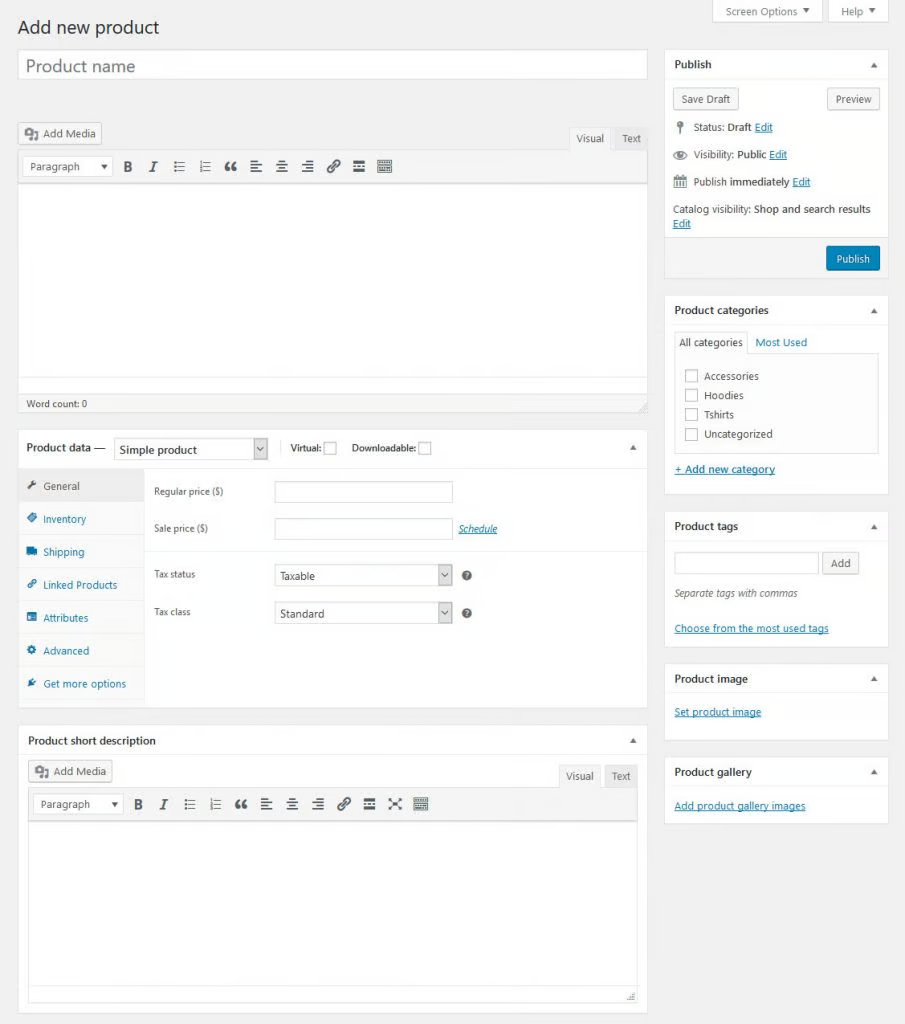
In conclusion, both Blocs and Elementor offer robust ecommerce capabilities, but they cater to different needs. Blocs might be more suitable for users who prefer to integrate with third-party ecommerce platforms, while Elementor could be a better choice for those who want to leverage the power of WooCommerce for their online store.
Website Editors
Website EditorsEvaluates the platforms’ website building and editing capabilities.Score Components:
- Customization tools (40%): Range and power of editing features.
- Editor usability (30%): User experience within the editor.
- Design flexibility (20%): Freedom in layout and design changes.
- Update and maintenance ease (10%): Simplicity of updating and maintaining the site.
 7.5
7.5
 8.5
8.5
🏆
Winner: Elementor
. Elementor, with a score of 8.5, offers a drag-and-drop interface that makes it easy to customize layouts, add content, and style websites visually in real-time. With a wide array of widgets and templates, users can effortlessly design complex elements such as sliders, forms, and animated headlines. Additionally, Elementor provides responsive design options, ensuring websites look great on all devices, alongside advanced features like custom CSS, role-based access control, and integration with a variety of marketing tools.
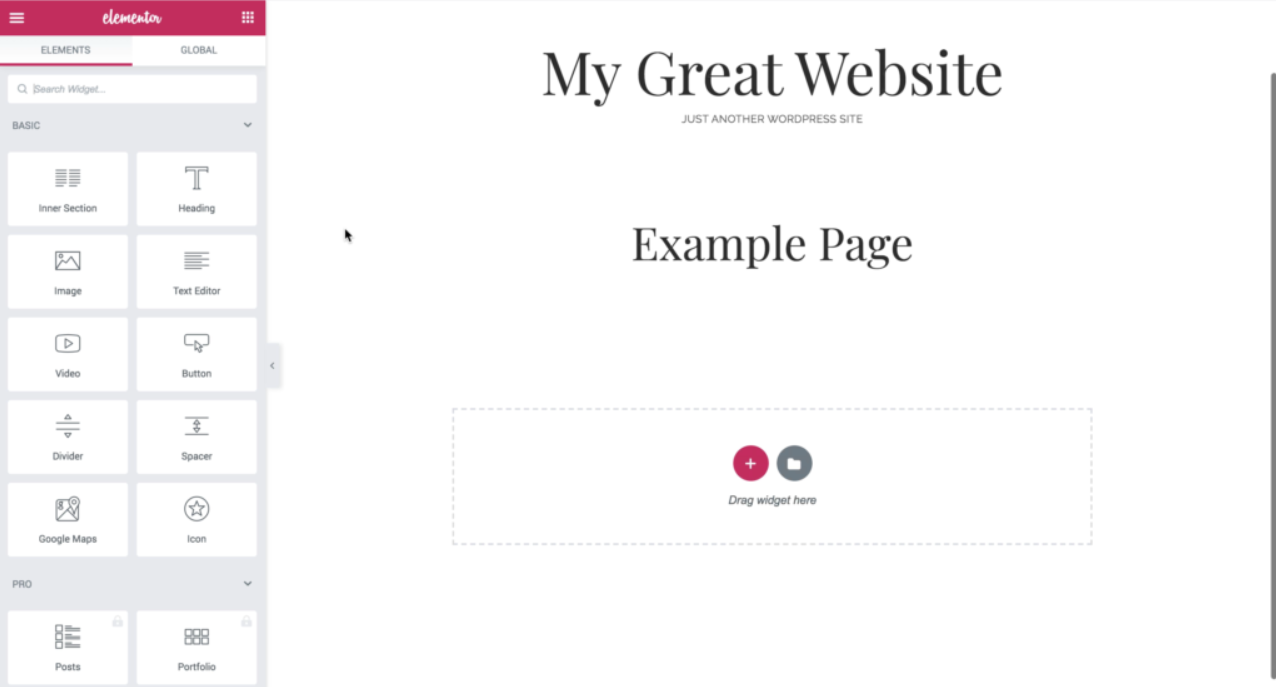
Blocs, scoring 7.5, is a user-friendly web design tool that enables the creation of modern, responsive websites without needing to code. It utilizes a block-based interface with drag-and-drop functionality, making web design accessible to designers and creatives without technical backgrounds. The app offers a variety of pre-designed blocks, integration options, and SEO tools to streamline the website creation process. Blocs stands out for its intuitive design process, allowing users to quickly bring their website visions to life with minimal effort.
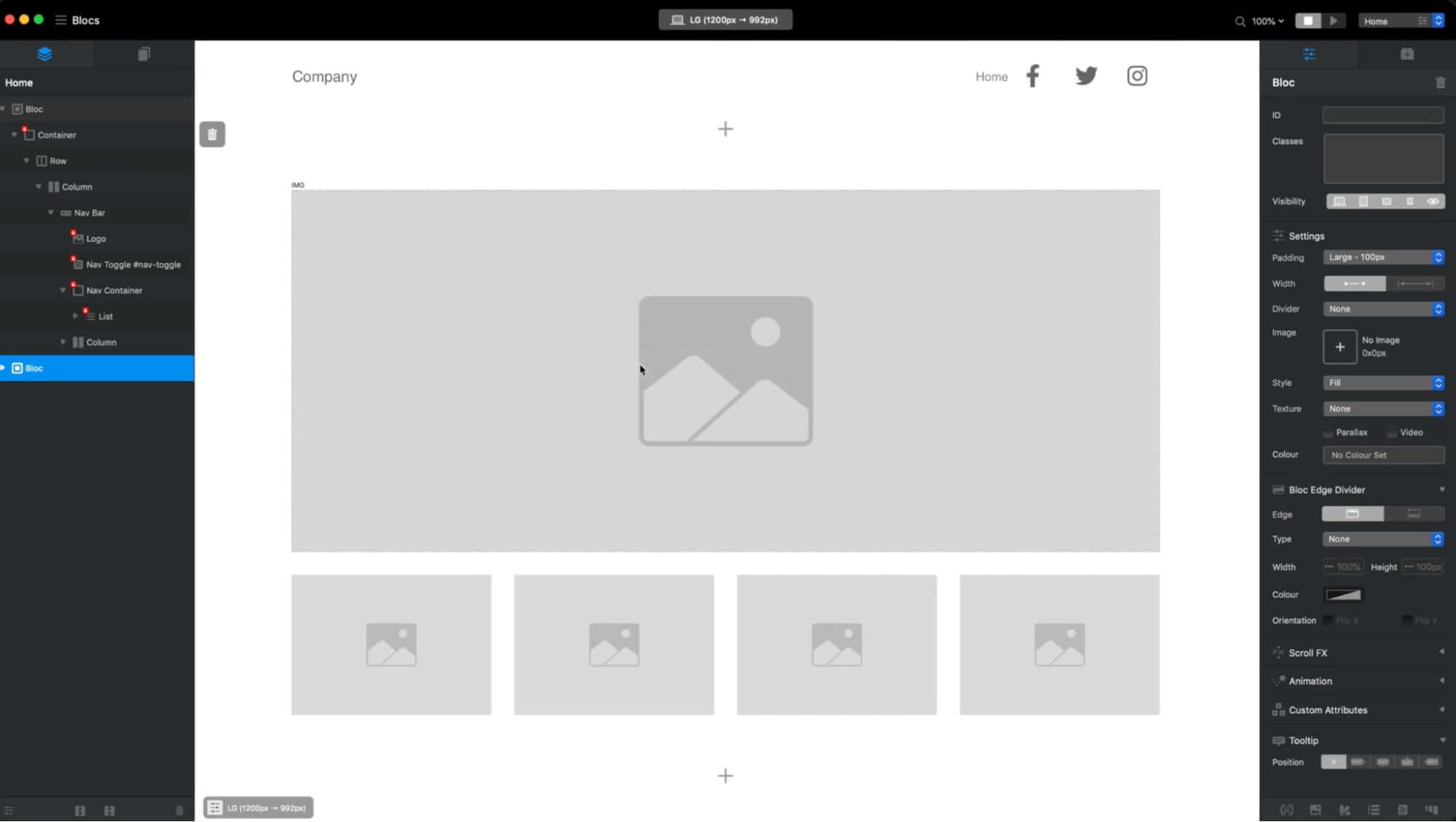
Mobile editor/app
 8.5
8.5
 0
0
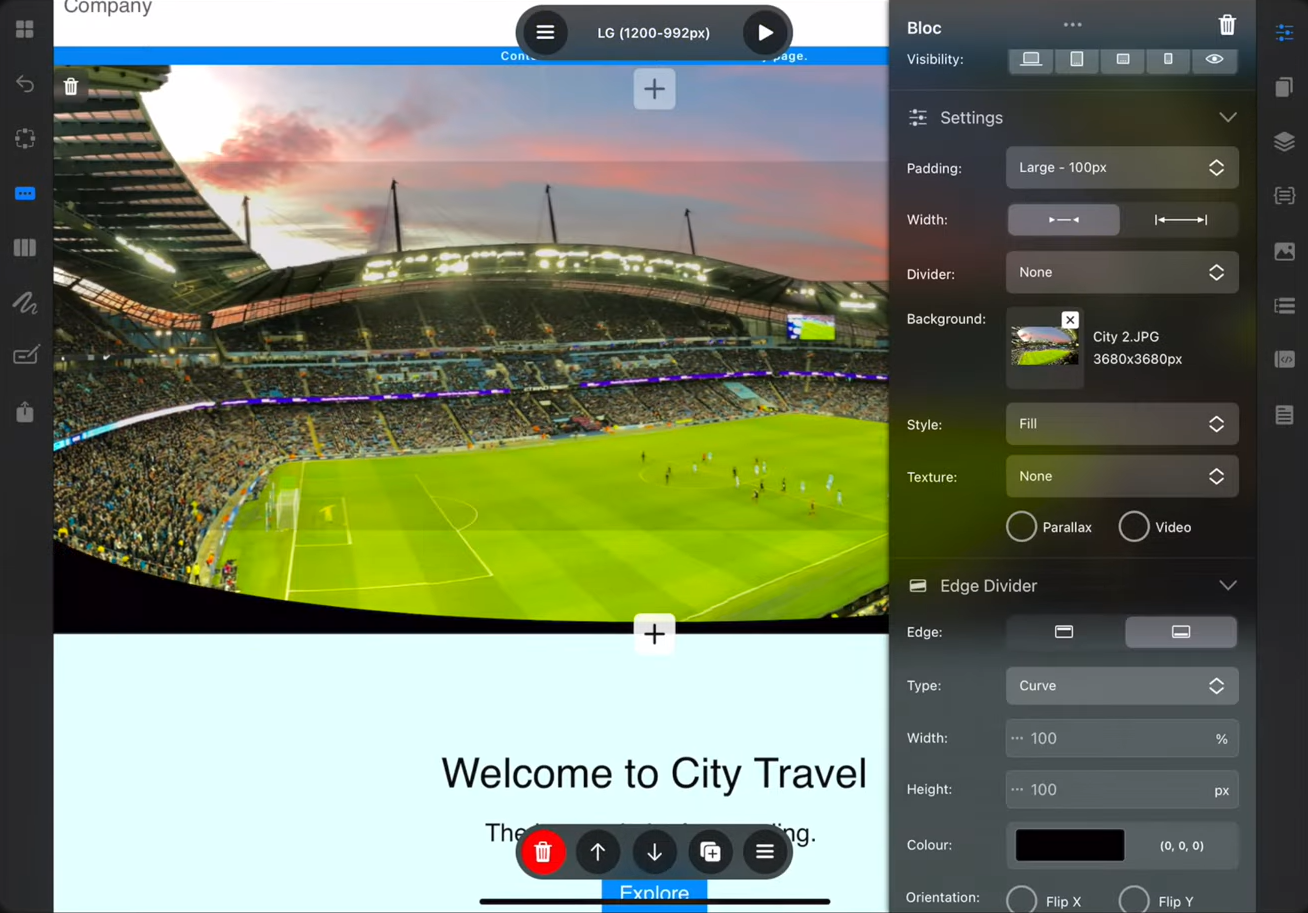
🏆
Winner: Blocs
. Both Blocs and Elementor offer robust website building capabilities, but when it comes to mobile editing, Blocs takes the lead. Blocs has a mobile editor app specifically designed for the iPad. This app provides a touch-first interface and includes all the essential features needed to create various types of websites, offering a flexible and efficient solution for building professional and beautiful websites on an iPad.
On the other hand, Elementor does not have a dedicated mobile editor, which limits its accessibility and convenience for users who prefer to work on their websites from mobile devices.
In summary, Blocs receives a higher rating due to its dedicated mobile editor and the flexibility it offers, while Elementor, despite its robust website building capabilities, falls short in terms of mobile editing.
Product testing options
Product Testing OptionsAssesses the options for trying out platform features before commitment.Score Components:
- Trial quality (40%): Extent and usefulness of the trial or free version.
- Feature accessibility (30%): How many features are available to test.
- Trial duration (20%): Length of the trial period.
- Ease of transition (10%): Smoothness of moving from trial to paid plans.
 7.0
7.0
 5.6
5.6
Overall Result
:
Blocs wins
. Blocs scores 7.0, while Elementor scores 5.6 in product testing options. Blocs offers a trial version and a 14-day money-back guarantee, allowing users to test some of its features. Elementor, on the other hand, offers a free version for self-hosted WordPress.org but does not provide a trial version. However, it does offer a 30-day money-back guarantee, during which users can test all premium features.

|

|
|
|---|---|---|
|
Free Plan |
No |
Yes, but only for self-hosted WordPress.org |
|
Trial Duration |
Yes |
No |
|
Testing Premium Features |
Some features during free trial and 14-day refundable period |
All features during 30-day refundable period |
|
Money Back Guarantee |
14-day money back guarantee |
30-day money back guarantee |
Price
PriceLooks at the cost-effectiveness and value for money of each platform.Score Components:
- Plan value (40%): What each pricing tier offers.
- Transparency and clarity (30%): Clearness of pricing structures.
- Flexibility of plans (20%): Range of options to suit different budgets.
- Hidden costs (10%): Additional expenses not included in the plan.
 9.0
9.0
 8.0
8.0
Blocs and Elementor both offer competitive pricing, but Blocs stands out with its one-time payment model, while Elementor offers more flexibility with its various plans.

|

|
|
|---|---|---|
|
$0-$10 |
No offering at this amount. |
Basic ($9.99/month): 1 website, with 10GB SSD storage, 25k monthly visitors, 30GB monthly bandwidth, daily auto backups stored for 14 days, Cloudflare CDN, and integrated caching tool Value for price: 6.5 |
|
$10-$20 |
No offering at this amount. |
Business ($19.99/month): 1 website, with 20GB SSD storage, 50k monthly visitors, 50GB monthly bandwidth, daily auto backups stored for 30 days, Cloudflare CDN, integrated caching tool and access to staging environment Value for price: 7.5 |
|
$20-$30 |
No offering at this amount. |
Grow ($22.99/month): 3 websites, with 30GB SSD storage, 75k monthly visitors, 75GB monthly bandwidth, daily auto backups stored for 30 days, Cloudflare CDN, integrated caching tool, access to staging environment and site cloning Value for price: 8.5 |
|
$40-$50 |
Blocs Plus (+$49.99): An add-on to the Blocs 5 plan, providing additional features such as the ability to build custom WordPress themes without writing code, extract typography, assets, and color schemes from any website, a productivity-boosting image editor, a class styles library manager, and an SEO helper. Value for price: 8.5 |
Scale ($49.99/month): 10 websites, with 40GB SSD storage, 100k monthly visitors, 100GB monthly bandwidth, daily auto backups stored for 30 days, Cloudflare CDN, integrated caching tool, access to staging environment and site cloning Value for price: 9.0 |
|
$90+ |
Blocs 5 ($99.99): This plan offers a native Mac app with no subscription required. It allows building unlimited websites, works offline, includes animations & scroll FX, powerful interactions, no page limit, font manager, writer mode, auto backup, all V5 updates, and email support. A Blocs license can be used on one Mac and all future Blocs V5 updates come for free. Value for price: 8.0 |
No offering at this amount. |
location. As a result in rare cases the prices displayed here can differ from the ones you see on their
websites.
Hosting quality
Hosting
qualityExamines the reliability and performance of the hosting solutions.Score Components:
- Uptime (40%): Consistency and reliability of website availability.
- Speed (30%): Loading times and performance.
- Bandwidth and storage (20%): Sufficiency of resources provided.
- Data centers (10%): Quality and distribution of hosting infrastructure.
 0
0
 7.8
7.8
🏆
Winner: Elementor
Elementor offers Google Cloud powered hosting included in all their plans, with a 99.9% uptime guarantee and a data center in Belgium. Blocs, on the other hand, does not offer hosting, which significantly limits its capabilities in this area.

|

|
|
|---|---|---|
|
Do they offer hosting? |
No | Yes, included in all their plans |
|
Data Centers: |
No hosting is offered | 1 data center in Belgium |
|
Type of hosting: |
No hosting is offered | Managed WordPress Hosting |
|
Uptime: |
No hosting is offered | 99.9% |
|
Uptime Guarantee: |
No hosting is offered | Yes, 99.9% |
Website Speed Optimization
Website Speed OptimizationEvaluates optimization of website loading timesScore Components:
- PageSpeed Score (30%): Google’s score indicating performance optimization.
- Loading Time (30%): The average time until a website is fully interactive.
- Mobile Optimization (15%): Optimization effectiveness for mobile devices.
- Resource Optimization (15%): Optimizing images, scripts, and other heavy resources.
- CDN Usage (10%): Use of CDN to enhance speed across geolocations.
 5.2
5.2
 6.7
6.7
🏆 Winner: Elementor
Both Blocs and Elementor prioritize website performance and page speed, but Elementor has a higher website speed optimization score and employs more strategies for speed optimization.

|

|
|
|---|---|---|
|
Focus |
WebP Generation |
Lazy Loading, Code Minification, Caching, CDN |
|
Performance Tools |
Not specified |
Not specified |
|
Key Strategies |
WebP Generation |
Lazy Loading, Code Minification, Caching, CDN |
|
Load Times |
Varies depending on optimization and website complexity |
Varies depending on optimization and website complexity |
|
Page Speed Scores Range |
Not specified |
Not specified |
|
Core Web Vitals Improvement |
Not disclosed |
Not disclosed |
Elementor, a popular website builder plugin for WordPress, allows users to create and edit websites through a visual drag-and-drop interface. It offers a wide range of widgets and templates, enabling users to design their sites without needing to write code. Elementor is known for its flexibility, allowing for the customization of every detail on a webpage, making it suitable for both beginners and professional web designers. The platform supports responsive design, ensuring websites look great on all devices, and it integrates with various WordPress themes and plugins, enhancing its functionality and versatility. Elementor employs strategies like lazy loading, code minification, caching, and CDN for speed optimization.
Blocs, a powerful and user-friendly website builder designed specifically for Mac users, allows users to create beautiful, modern websites without the need to write code, thanks to its intuitive visual interface and pre-designed blocks. Blocs offers a wide range of features including responsive design, pre-made templates, and integration with popular web standards and tools. This makes it an ideal choice for designers, developers, and anyone looking to create professional websites with minimal effort. Blocs uses WebP Generation as a strategy for speed optimization.
Get a head start on website creation with AI
Create a custom website tailored to your business needs 10X faster with 10Web AI Website Builder!
Plugins and integrations
Plugins and integrationsMeasures the range and effectiveness of additional plugins and integrations.Score Components:
- Variety of options (40%): Range of available add-ons.
- Integration smoothness (30%): Ease of integrating plugins into the site.
- Quality of plugins (20%): Functionality and reliability of the options.
- Custom integration capabilities (10%): Support for custom or third-party integrations.
 6.8
6.8
 7.6
7.6
🏆 Winner: Elementor.
Elementor, with a score of 7.6, offers a wide range of both free and premium add-ons that extend its functionality beyond the base version. These add-ons offer advanced widgets, modules, and complete theme building capabilities for deep customization. They enable superior integration with WooCommerce, third-party services, and provide advanced marketing tools to enhance conversions and user engagement.
On the other hand, Blocs, with a score of 6.8, also offers a variety of custom-made add-ons and extensions that enhance web design capabilities and facilitate a richer web development experience. However, Elementor’s extensive range of plugins and seamless integrations give it the upper hand.
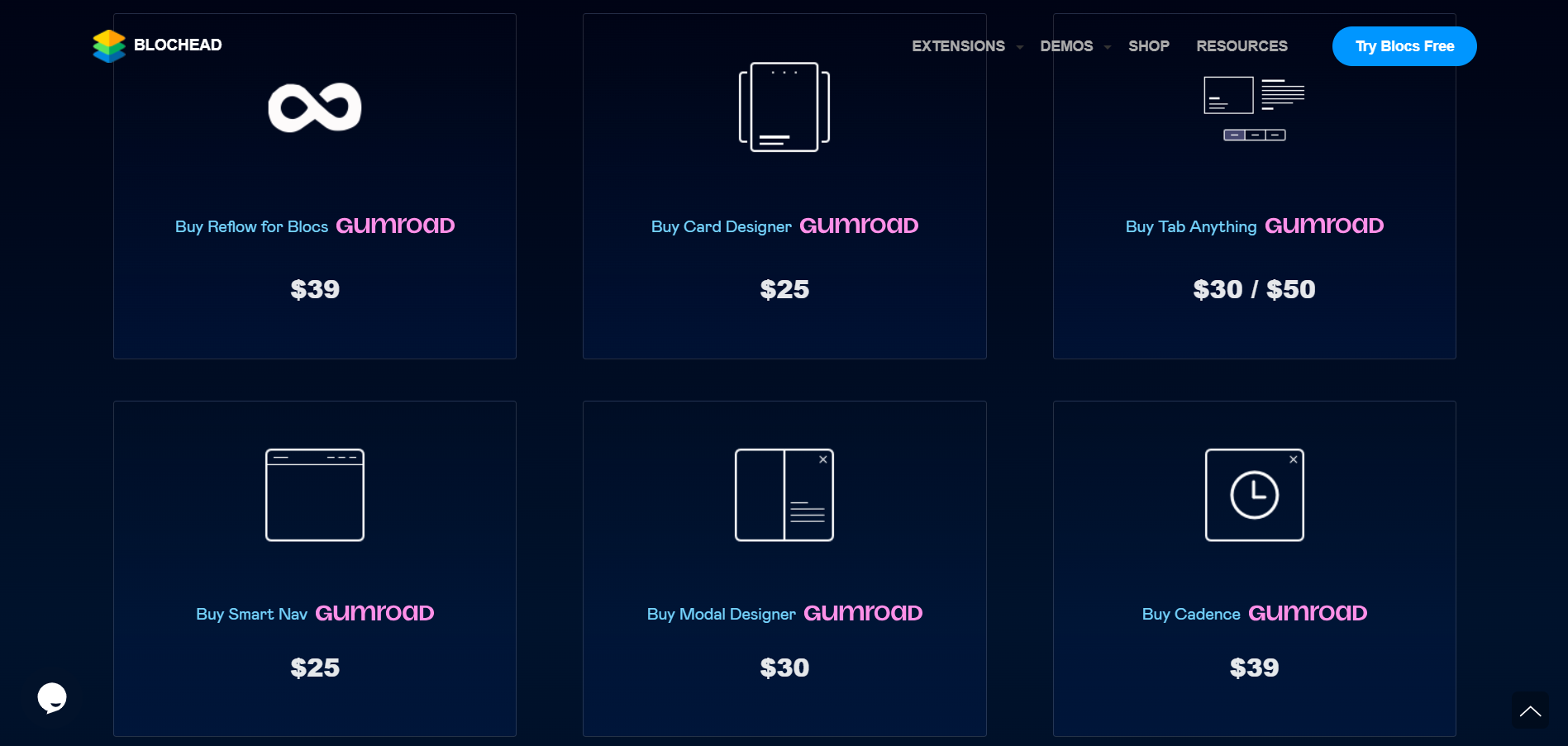
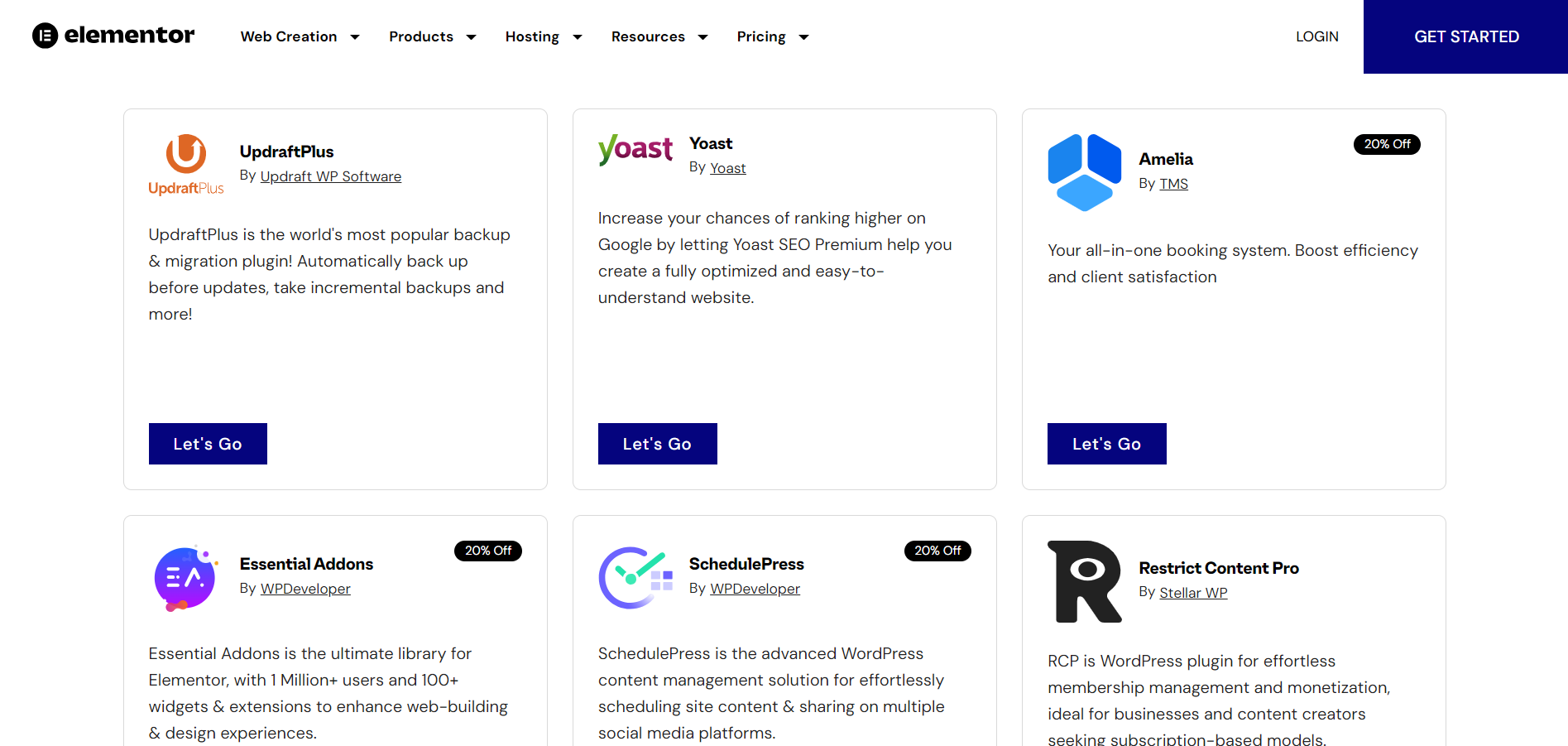
Marketing Features
Design FunctionalitiesRepresents how well each platform allows for creative design and customization of websites.Score Components:
- Template Variety (30%): Range and quality of design templates.
- Customization (30%): Flexibility and options for design alterations.
- User Interface (20%): Ease and intuitiveness of the design process.
- Responsiveness (10%): Adaptability to different devices and screen sizes.
- Innovation (10%): Unique design features and tools.
 6.9
6.9
 7.8
7.8
🏆
Overall Winner: Elementor
. Elementor stands out for its more comprehensive marketing tools, especially in email marketing, blogging, and ads and promotions. Blocs is strong in SEO tools and analytics and reporting, but lacks in ads and promotions.

|

|
|
|---|---|---|
|
SEO Tools |
|
|
|
Email Marketing |
Yes, with Mailchimp Form integration |
Yes, with integration of various email marketing services and plugins |
|
Blogging |
|
|
|
Social Media Integration |
Yes |
Yes, integration of social media buttons |
|
Analytics and Reporting |
Yes, via Google Analytics integrations |
Yes, with integration of Google Analytics |
|
Ads and Promotions |
No |
Yes |
Customer Support
Customer supportEvaluates the quality and availability of support options.Score Components:
- Response time (40%): Speed of support responses.
- Support quality (30%): Effectiveness and helpfulness of the support.
- Availability (20%): Range of support channels (phone, chat, email).
- Resource richness (10%): Quality of self-help and educational materials.
 5.1
5.1
 7.2
7.2
🏆 Winner: Elementor
. Elementor takes the lead in this category with a customer support score of 7.2, compared to Blocs’ score of 5.1. Elementor provides 24/7 customer support through live chat and ticketing, ensuring that users can get help whenever they need it.
On the other hand, Blocs relies heavily on self-service support, with a focus on articles and community forums. While this can be helpful for some users, it may not be sufficient for those who encounter complex issues and require direct, personalized support. Furthermore, neither Blocs nor Elementor offer specific support for enterprises.
Security
SecurityLooks at the platforms’ security measures and data protection.Score Components:
- Data protection (40%): Safeguards for user and customer data.
- SSL and encryption (30%): Implementation of secure connections.
- Compliance (20%): Adherence to industry security standards.
- Regular updates (10%): Frequency of security updates and patches.
 0.0
0.0
 9.1
9.1
🏆
Winner: Elementor
. Elementor’s commitment to security is evident in its robust data protection measures, advanced hosting features, and compliance with regulations. It leverages Google Cloud’s infrastructure for high security, including end-to-end encryption, and employs both active and passive security measures, including 24/7 monitoring, regular updates, backups, and specialized security protocols to protect against common threats. Elementor’s commitment to security is further emphasized by its ISO 27001 certification and a proactive Bug Bounty program.
On the other hand, Blocs does not provide any information about its security measures. As Blocs is an offline website builder, security measures vary widely depending on the hosting provider users choose. Therefore, in terms of security, Elementor is the clear winner.
AI Capabilities
AI capabilitiesMeasures the effectiveness of AI-driven features and tools.Score Components:
- Automation efficiency (40%): Impact of AI on streamlining processes.
- Personalization (30%): AI-driven customization for users or customers.
- AI-Assisted design (20%): Role of AI in website design and functionality.
- Data analysis (10%): Use of AI in interpreting user data and analytics.
 5.4
5.4
 7.4
7.4

|

|
|
|---|---|---|
|
AI Builder |
|
Elementor has an AI builder integrated into its platform |
|
AI Ecommerce features |
|
Elementor provides AI-driven features for eCommerce websites |
|
AI Content Generation |
Blocs incorporates an AI Assistant for content generation |
Elementor’s AI enhances website creation with text and code generation |
|
Additional AI features |
Blocs AI Assistant introduces advanced AI capabilities |
Elementor can integrate many third-party AI powered WordPress plugins |
🏆 Winner: Elementor
. Elementor, with a score of 7.4, offers a more comprehensive set of AI capabilities, including an AI builder, AI-driven ecommerce features, AI content generation, and the ability to integrate third-party AI plugins. This makes it a more versatile and powerful tool for website creation and management.
Blocs, scoring 5.4, does not have an AI builder or AI ecommerce features. However, it does incorporate an AI Assistant for content generation and introduces advanced AI capabilities into the design environment. Despite these features, Blocs falls short in comparison to Elementor’s extensive AI capabilities.
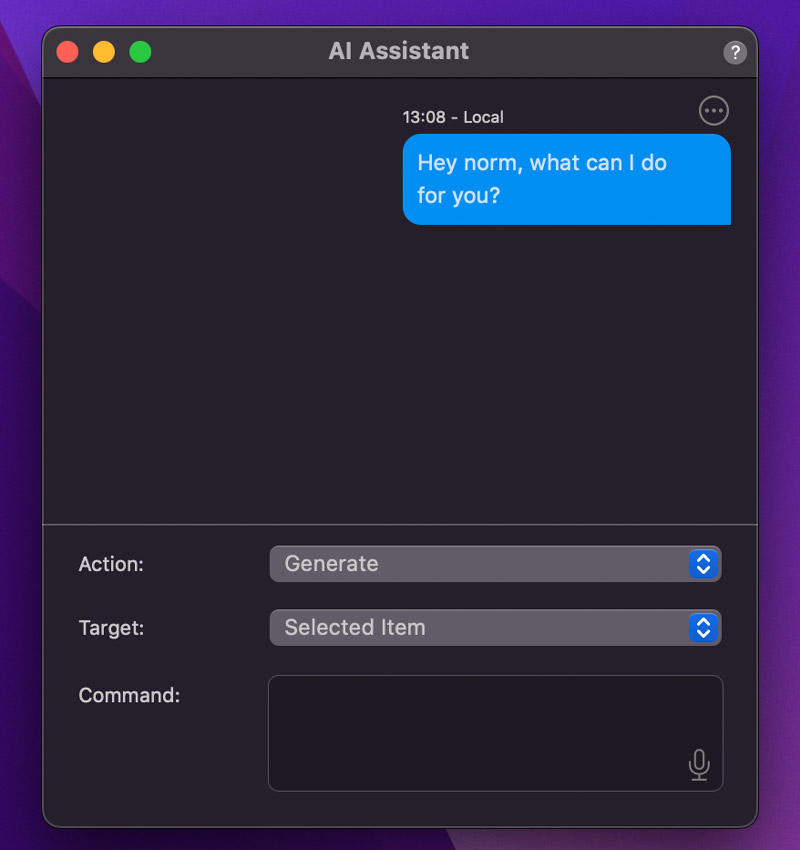
User Management
User ManagementAssesses the platforms’ capabilities in managing user roles, permissions, and accessibility.Score Components:
- Role Customization (40%): Flexibility in creating and defining user roles and
permissions. - Ease of Management (30%): User interface and tools for managing users.
- Access Control (20%): Effectiveness of access control measures for different user
levels. - Scalability (10%): Ability to manage a growing number of users efficiently.
 1.4
1.4
 8.8
8.8
🏆 Winner: Elementor
. The user management capabilities of Blocs and Elementor are quite different.
- Blocs allows only one user to build and edit a website.
- Elementor, operating on WordPress, allows multiple users with different roles and permissions. Administrators have full access to edit any part of the site, including Elementor settings, while Editors can manage posts and pages made with Elementor. Authors and Contributors have limited capabilities, with the former being able to manage their own posts. Elementor Pro offers a Role Manager feature, enabling further customization of what different roles can do within Elementor.
Elementor User Roles and Access Levels:
| Role | Description | Access Highlights |
|---|---|---|
| Administrator | Users with full access to all administration features, including Elementor settings. | Can edit all content, Access to Elementor settings, Can install plugins and themes, Can manage users |
| Editor | Users who can manage and publish content including pages and posts. | Can edit pages/posts created with Elementor, Cannot access Elementor settings, Can manage categories, tags, and links, Can moderate comments |
| Author | Users who can publish and manage their own posts. | Can create posts with Elementor, Cannot edit pages, Limited access to media library, Cannot access Elementor settings |
| Contributor | Users who can write and manage their own posts but cannot publish them. | Can create content with Elementor, Cannot publish or edit pages, No access to Elementor settings, Submissions require review by higher-level roles |
Additional Features

|

|
|
|---|---|---|
|
SSL Certificate |
|
|
|
Custom Domain |
|
|
|
Free Custom Domain Included |
|
|
|
International Domains |
|
|
|
Mobile Responsive |
|
|
|
Page Speed |
|
|
|
Website Builder Mobile App |
|
|
|
Convert a Website To An App |
|
|
|
Website Analytics |
|
|
|
Multilingual Sites |
|
|
|
Multiple Users |
|
|
User Feedback
Blocs website builder is praised for its intuitive drag-and-drop interface, making it accessible to users with varying levels of web development expertise. Its extensive library of templates and customization options, including the ability to add custom CSS and JavaScript, facilitates the rapid creation of diverse and visually appealing websites. However, users report encountering bugs and express a desire for more sophisticated customization features, indicating room for improvement. Overall, Blocs is valued for significantly streamlining the web design process, supported by a strong community and educational resources, despite its learning curve and occasional technical glitches.
Elementor is widely appreciated for its intuitive drag-and-drop interface, enabling rapid creation of professional and responsive websites without coding skills. It offers a vast range of templates and compatibility with WordPress, making it a go-to for diverse users. Despite its benefits, concerns arise regarding website loading times, subscription costs, and occasional compatibility issues. Feedback on customer support and legacy plan management is mixed, with some users experiencing dissatisfaction. Overall, Elementor is valued for its efficiency in web development, although some aspects, particularly support services, could be improved.
The making of this blog
We followed a clear, step-by-step process to write and research this article.
FAQ
Which platform is better for Mac users, Blocs or Elementor?
Can I use Blocs or Elementor for ecommerce websites?
Which platform offers more design flexibility?
How do Blocs and Elementor compare in terms of pricing?
Which platform is better for beginners?










